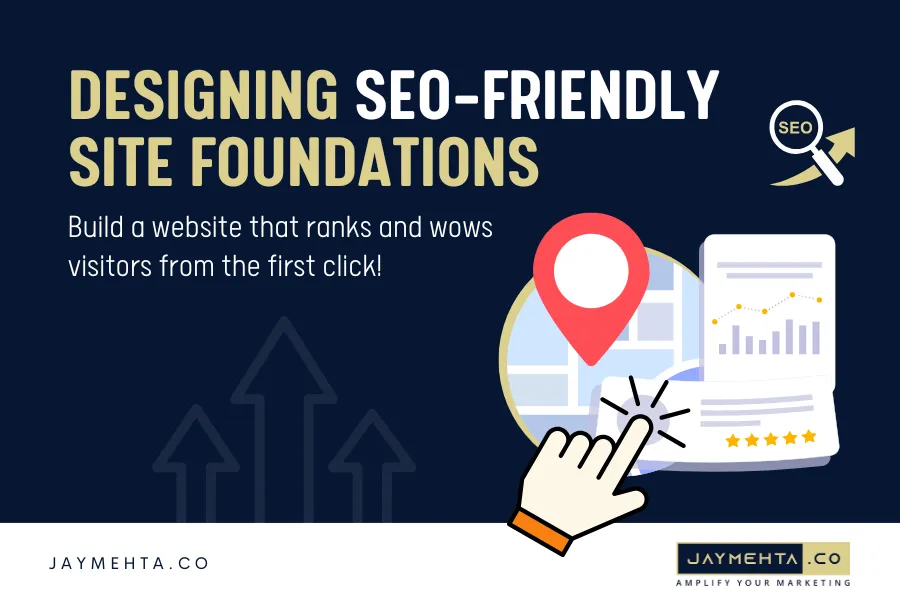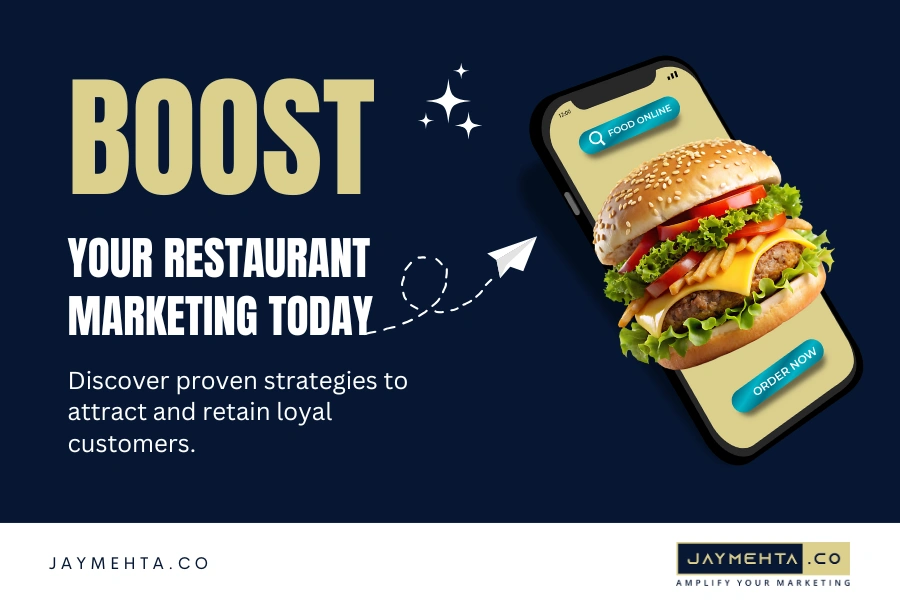Introduction
Are you a coach who wants to attract more clients and sell more programs? Are you looking for effective ways to market your coaching business and achieve tangible results, all while staying within a limited marketing budget? If so, you're in the right place.
In today's competitive coaching industry, it's crucial to have a solid marketing plan in place to stand out from the crowd and reach your target audience effectively. However, with the abundance of marketing options available, it can be challenging to determine which strategies will yield the best results specifically for coaches.
That's where Jay Mehta and his team come in. They specialize in helping coaches like you grow their client base without relying on expensive paid advertising. With their expertise and proven strategies, they have assisted numerous coaches in achieving remarkable success.
In this guide, we will delve into the top 25 ways to market your coaching business, providing you with valuable insights and actionable steps to boost your visibility, attract clients, and ultimately increase your revenue.
Whether you're a seasoned coach seeking to enhance your marketing efforts or a newcomer looking for effective strategies to get your coaching business off the ground, you'll find a wealth of knowledge and practical advice to help you achieve your goals.
So, if you're ready to discover the secrets to marketing your coaching business effectively, without breaking the bank, let's dive into the top 25 strategies that will propel your coaching career to new heights.
Why Marketing Your Coaching Business is Challenging

Marketing your coaching business can be a daunting task filled with challenges, but understanding these obstacles is the first step toward overcoming them. Below, we will explore the reasons why marketing a coaching business can be difficult and provide you with valuable insights and strategies to navigate through these challenges successfully.
Lack of Awareness and Understanding
One of the primary challenges coaches face is a lack of awareness and understanding among their target audience. Unlike established industries or products, coaching services may be unfamiliar to many potential clients. Educating your target audience about the benefits of coaching and how it can positively impact their lives is crucial but can require significant effort and resources.
Intangible Nature of Coaching
Coaching is often intangible in nature, making it challenging to market compared to physical products or tangible services. The results of coaching are subjective and personal to each client, making it difficult to convey the value proposition in a tangible way.
Overcoming this challenge involves finding creative ways to communicate the benefits and outcomes of coaching, such as sharing success stories and testimonials.
Differentiating Yourself in a Crowded Market
The coaching industry is highly competitive, with numerous coaches offering similar services. Standing out and differentiating yourself from the competition can be a significant challenge. Many coaches struggle to articulate their unique value proposition and fail to effectively communicate what sets them apart.
To overcome this challenge, it is crucial to identify your niche, highlight your unique approach, and clearly define the benefits clients can expect from working with you.
Limited Marketing Budget
Coaches often operate on limited marketing budgets, making it challenging to execute extensive marketing campaigns or hire professional marketers. This constraint requires coaches to be resourceful and focus on cost-effective marketing strategies that can yield maximum results.
Leveraging online platforms, social media, content marketing, and networking can be effective ways to reach a wider audience without a substantial financial investment.
What Many Coaches Get Wrong About Marketing
- Falling for Unrealistic Promises and "Magic Systems”
- Overlooking the Importance of Genuine Client Connections
- Neglecting the Power of Organic Marketing
- Ignoring the Value of Testing and Iteration
- Neglecting the Importance of Target Audience Segmentation
- Relying Solely on Word-of-Mouth Referrals
- Underestimating the Power of Online Presence
When it comes to marketing, many coaches fall into common pitfalls that hinder their success. Understanding these misconceptions is crucial for coaches looking to make an impact in the industry and effectively promote their services to potential clients. Here are the reasons
Falling for Unrealistic Promises and "Magic Systems”
Unfortunately, many coaches fall into the trap of unrealistic promises and "magic systems" that claim to generate enormous profits with minimal effort. They invest significant amounts of money in programs that guarantee seven-figure monthly incomes while working only a few minutes a day.
However, these snake oil programs often fail to deliver on their promises. Coaches end up wasting their budgets on training sessions that do not provide the expected results. It is important to approach marketing with a realistic mindset, understanding that building a successful coaching business requires dedication, hard work, and a well-thought-out marketing strategy.
-
Overlooking the Importance of Genuine Client Connections
While paid ads and lead generation tactics have their place in marketing, relying solely on them to solve your client acquisition problem is a mistake. Building genuine connections with potential clients is crucial for long-term success.
Some coaches believe that investing in paid advertisements will instantly attract a flood of clients, but they overlook the importance of establishing trust and fostering meaningful relationships. Authentic engagement, relationship building, and providing value to your target audience through content marketing and social media interactions are equally important strategies for attracting and retaining clients.
Neglecting the Power of Organic Marketing
Paid ads can be an effective part of your marketing strategy, but solely relying on them without considering organic marketing methods is a missed opportunity. Organic marketing refers to strategies that focus on naturally attracting an audience through content creation, search engine optimization (SEO), social media engagement, and thought leadership.
Some coaches overlook the potential of organic marketing and believe that paid ads are the only solution for acquiring clients. By embracing organic marketing techniques, coaches can establish themselves as experts, build credibility, and attract clients who resonate with their message and values.
Ignoring the Value of Testing and Iteration
Another mistake coaches make is expecting immediate results from their marketing efforts without allowing room for testing and iteration. Marketing is not a one-size-fits-all approach, and what works for one coach may not work for another.
It is essential to experiment with different strategies, analyze the results, and make adjustments based on the data. Continuous testing and iteration allow coaches to optimize their marketing efforts, refine their messaging, and better understand their target audience's preferences and needs.
Neglecting the Importance of Target Audience Segmentation
One common mistake coaches make is failing to identify and understand their target audience fully. Without a clear understanding of your ideal clients, their needs, and their preferences, your marketing efforts may lack direction and fail to resonate with potential clients.
It is essential to conduct market research, define your target audience personas, and tailor your marketing messages accordingly.
Relying Solely on Word-of-Mouth Referrals
While word-of-mouth referrals are valuable and can contribute to the growth of your coaching business, solely relying on them can limit your reach and growth potential. Many coaches make the mistake of not proactively marketing their services beyond their existing client base.
By diversifying your marketing strategies and actively promoting your services, you can expand your reach and attract new clients who may not have been aware of your offerings.
Underestimating the Power of Online Presence
In today's digital age, having a strong online presence is crucial for marketing success. However, some coaches underestimate the significance of maintaining a professional website, engaging on social media, and utilizing digital marketing techniques.
Establishing a robust online presence allows you to showcase your expertise, connect with potential clients, and build credibility in the coaching industry.
Top 25 ways to market your coaching business

Marketing is essential for any coaching business to attract clients, build brand awareness, and establish a strong presence in the industry. However, with the ever-evolving landscape of marketing strategies and platforms, it can be challenging to determine the most effective approaches for promoting your coaching services.
To help you navigate this dynamic environment, we have compiled a comprehensive list of the top 25 ways to market your coaching business successfully:
Define Your Target Audience
To stand out in the coaching industry, it is crucial to understand and segment your target audience. By identifying their specific needs and challenges, you can tailor your coaching services and develop a unique coaching proposition that sets you apart from others.
Develop a Strong Online Presence
In today's digital age, having a strong online presence is vital for coaches. Create a professional website that showcases your unique coaching approaches and effectively communicates your personal branding. Use innovative coaching methods and leverage branding techniques specifically designed for coaches to position yourself as an expert in your field.
Offer Valuable Free Content
To attract potential clients and differentiate yourself, provide valuable free content. Develop blog posts, articles, and videos that offer insights, tips, and solutions to the challenges your target audience faces. By demonstrating your expertise and sharing valuable information, you can establish yourself as a thought leader in the coaching industry.
Utilize Email Marketing
Implement an email marketing strategy to nurture relationships with potential and existing clients. Send regular newsletters, updates, and exclusive content that adds value to their lives. By using effective email marketing strategies, such as segmentation and personalization, you can build a loyal client base and stand out in the coaching industry.
Leverage Social Proof
To build trust and credibility, leverage social proof in the form of testimonials and case studies. Share success stories of your clients and highlight the impact of your coaching services. This social proof will help potential clients see the value you provide and differentiate you from other coaches.
Podcasting
Consider starting a podcast where you can share your expertise, interview industry experts, and provide valuable insights to your target audience. Podcasting allows you to reach a wider audience and establish yourself as a knowledgeable and influential coach.
Facebook Groups
Create a Facebook group centered around a specific topic or niche related to your coaching services. Encourage discussions, provide valuable content, and engage with group members. This will not only help you build a community but also establish yourself as an authority in your field.
Daily Email System
Implement a daily email system where you send short, actionable tips and advice to your email subscribers. This consistent communication will keep you top of mind and position you as a trusted resource for your target audience.
Guest Blogging
Write guest blog posts for other relevant websites and platforms in the coaching industry. This will allow you to reach a new audience and establish yourself as an industry expert. Include a bio with a link to your website to drive traffic and generate leads.
Social Media
Maintain an active presence on social media platforms that resonate with your target audience. Share valuable content, engage with your followers, and participate in relevant conversations. Use hashtags strategically to increase your visibility and attract potential clients.
Online Communities
Participate in online communities and forums where your target audience is active. Provide helpful advice, answer questions, and share your expertise. This will help you establish yourself as a trusted authority and generate leads for your coaching business.
Offer a Free Coaching Call
Provide potential clients with the opportunity to experience your coaching services through a free introductory call. This will allow them to see the value you provide and differentiate you from other coaches. Use this call to showcase your unique coaching approach and build a connection with the potential client.
Collaborate with Other Coaches
Network and collaborate with other coaches in complementary niches. By combining your expertise, you can offer unique coaching programs or workshops that cater to a broader audience. This collaboration will help you expand your reach and stand out in the coaching industry.
Continuous Professional Development
Invest in your own continuous professional development as a coach. Attend conferences, workshops, and training programs to enhance your skills and stay updated with the latest coaching techniques and trends. By continuously improving yourself, you position yourself as a coach who is committed to providing the best possible service to your clients.
Video Marketing
Create engaging and informative videos where you share coaching tips, insights, and success stories. Video marketing allows you to connect with your audience on a deeper level and showcase your personality and coaching style. Share these videos on your website, social media platforms, and video-sharing platforms like YouTube.
SEO Optimization
Optimize your website and blog posts for search engines to improve your visibility and attract organic traffic. Use relevant keywords, create high-quality content, and ensure your website is user-friendly and mobile-responsive. Implement SEO best practices to rank higher in search engine results and gain exposure in the coaching industry.
Content Marketing
Develop a comprehensive content marketing strategy that includes blog posts, articles, ebooks, and downloadable resources. Create valuable and educational content that addresses the pain points of your target audience.
Share this content on your website, social media platforms, and through email marketing to position yourself as an expert and attract potential clients.
Website Design
Invest in a professional and visually appealing website design that reflects your brand and effectively communicates your coaching services. Your website should be easy to navigate, visually appealing, and optimized for conversions. Provide clear calls-to-action that guide visitors to take the desired actions, such as signing up for a free consultation or subscribing to your newsletter.
Pay-Per-Click Advertising
Consider using pay-per-click (PPC) advertising to drive targeted traffic to your website. Develop a PPC campaign that targets relevant keywords and demographics. Monitor and optimize your ads to ensure maximum return on investment (ROI) and attract potential clients who are actively searching for coaching services.
Build a Strong Brand
Invest in branding for coaches to create a unique and recognizable identity in the coaching industry. Develop a compelling brand story, design a professional logo, and use consistent branding elements across all your marketing channels. A strong and cohesive brand will help you stand out and attract your target audience.
Thought Leadership
Establish yourself as a thought leader in the coaching industry by sharing your expertise and insights. Publish articles on reputable websites, contribute to industry publications, and speak at conferences and events. Thought leadership helps you build credibility and positions you as an authority in your field.
Networking and Collaboration
Network with professionals in related industries and explore collaboration opportunities. Partnering with other businesses or professionals can expand your reach and attract new clients. Attend industry events, join networking groups, and foster meaningful relationships to enhance your visibility and credibility.
Monitor and Learn from Competition
Keep an eye on your competitors to understand their strategies and learn from their successes and failures. Analyze their marketing techniques, website design, and unique selling propositions. Use this knowledge to differentiate yourself and develop a competitive edge in the coaching industry.
Stay Updated with Digital Marketing Trends
Stay informed about the latest digital marketing trends and techniques. Follow industry blogs, attend webinars, and read relevant books to expand your knowledge.
Implement the latest digital marketing strategies such as social media marketing, email marketing, and content marketing to effectively reach your target audience. By staying updated, you can leverage emerging trends and stay ahead of the competition.
Seek Professional Guidance
Consider hiring a digital marketing consultant to help you build a strong online brand. A digital marketing consultant can provide expert advice, create customized strategies, and optimize your marketing efforts. They have the knowledge and experience to navigate the digital landscape and help you achieve your business goals.
Conclusion
In conclusion, standing out in the coaching industry requires a strategic approach to marketing. By implementing the ideas mentioned above, you can differentiate yourself, attract your target audience, and build a successful coaching brand.
Remember to continuously refine your strategies, stay updated with industry trends, and leverage the power of digital marketing to position yourself as an expert coach.
Feel free to explore these articles for more in-depth insights and guidance.
Remember, the coaching industry is competitive, but with a strategic and innovative approach to marketing, you can differentiate yourself, attract your target audience, and build a successful coaching brand. Best of luck on your journey as a coach!











